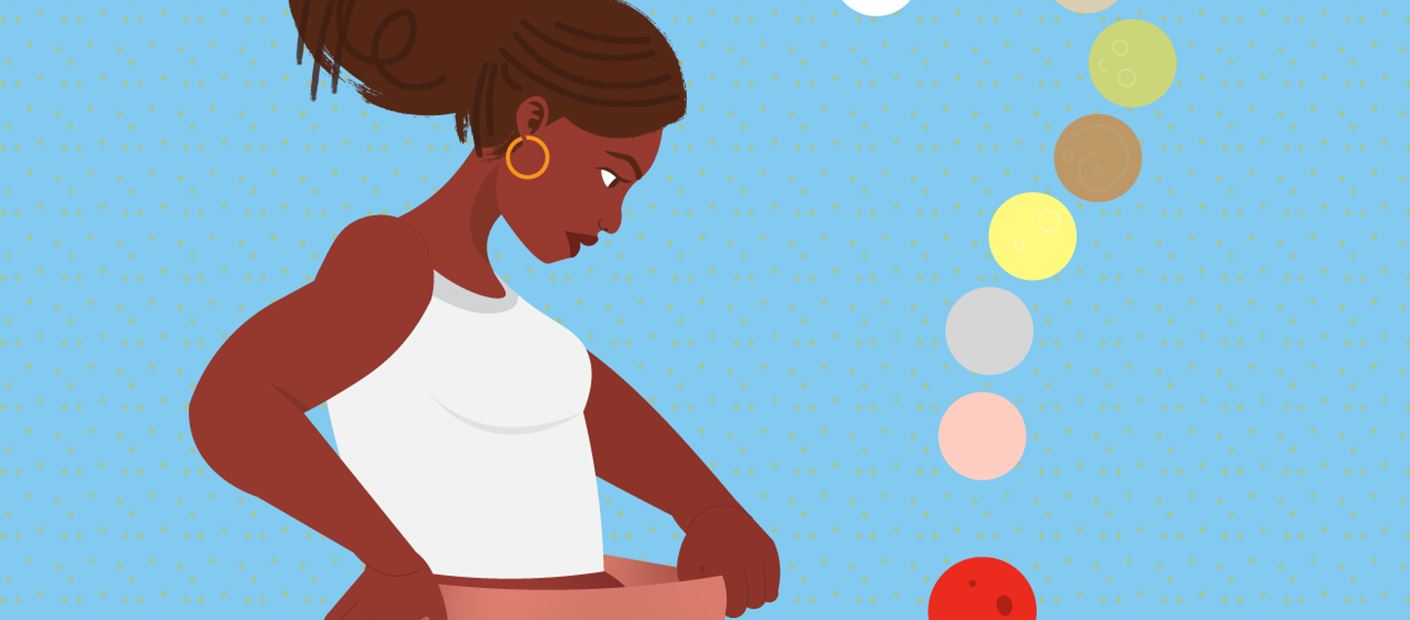
Now that you’re pregnant, it’s more important than ever to take care of yourself both physically and emotionally. From check-ups at the clinic to planning your baby’s birth, the right antenatal care (ANC) will help you to have a safe and healthy pregnancy.
Here’s what you need to know.
What kind of antenatal care do I need?
Antenatal care (ANC) is the healthcare and support you have while you’re pregnant. It will help to make sure you and your baby are well throughout your pregnancy.
Getting ANC is the most important step you can take to having a healthy pregnancy. So as soon as you know you’re pregnant, start your ANC by contacting our friendly and supportive MSI providers.
Your care will include regular check-ups. These change as your pregnancy progresses. At the start, you may have blood tests to check for any health issues that could affect your pregnancy or your baby. Later on, you’ll have your blood pressure measured and you may be asked to do urine tests to check for signs of a pregnancy condition called pre-eclampsia. Pre-eclampsia can cause serious problems for you and your baby if it isn’t monitored and treated.
About halfway through your pregnancy, you’ll be offered a scan to see how your baby is developing. Although the scan is done for medical reasons, it’s very exciting to see your baby for the first time.
At your antenatal appointments, you can ask your provider any questions you have. Write them down so you don’t forget. You can also speak with someone in confidence if you need extra support. Use this opportunity to get help if you’re experiencing domestic violence or emotional abuse.
Which foods should I eat for a healthy pregnancy?
The more varied your diet is, the more likely you are to get the nutrients you and your growing baby need.
Try to eat some of these foods every day:
- Fruit and vegetables.
- Protein-rich foods (beans, pulses, fish, eggs, meat – but not liver – poultry and nuts)
- Starchy foods (potatoes, yams, bread and grains – whole grains are healthier)
- Dairy foods (pasteurised milk, cheese and yoghurt)
Should I take a vitamin supplement?
When you’re pregnant, there are some nutrients that are hard to get from food alone. So all pregnant women should take a folic acid tablet for the first 12 weeks of pregnancy. Folic acid is a vitamin that prevents a problem with your baby’s spine. You may also need extra vitamin D and iron to help your baby grow. Your MSI provider can give you more information about supplements.
What’s not safe to eat in pregnancy?
Some foods aren’t safe while you’re pregnant. They include:
- unpasteurised milk and cheeses
- raw or undercooked meat
- certain types of fish including shark, marlin and swordfish
It’s not just what you’re eating but also how you store and prepare food that is important.
During pregnancy your immune system doesn’t work as well as usual, so you need to be extra careful about food hygiene. These tips will help you stay safe:
- Wash your hands before cooking and eating and keep your kitchen clean
- Use safe water
- Store raw food away from cooked food
- Cook food thoroughly, particularly poultry and meats
- Don’t leave cooked or fresh food out of the fridge for more than two hours
- Wash fruit and veg thoroughly, especially if you’re eating them raw
Is it safe to exercise in pregnancy?
Yes. Just be careful to avoid activities that may cause you to fall over or strain your joints. Keeping active during pregnancy boosts your chance of shorter labour. Regular exercise will also help you maintain a healthy weight and can prevent low back pain and pelvic pain.
Aim for a mixture of activities that raise your heart rates, such as brisk walking, swimming or running, and strength-building exercises, such as using light weights and yoga.
You don’t need any special equipment. There are lots of free exercise videos online that can give you ideas for safe workouts at home.
How should I plan for my baby’s birth?
You’ll feel more confident about giving birth to your baby if you know what to expect. There may also be aspects of your labour and delivery where you have some choices, so thinking about what you want will help you feel prepared. Your MSI provider can talk to you about your options for:
- where to have your baby
- pain relief
- positions you can try when you’re in labour
- who you want to have with you
You can write your choices down in a birth plan which you can share with the team who look after you during your labour. Remember you’ll need to be flexible; labour doesn’t always go to plan.
How can I get support during my pregnancy?
Many women feel like they’re on an emotional rollercoaster during pregnancy. One moment you’re excited about becoming a mum, the next overwhelmed.
One of the best ways to reduce stress is simply by talking. Find someone you trust and tell them how you’re feeling. It could be your husband, a friend or a family member. Or an online community for mums-to-be can be a great place to vent.
You may find that you need more practical support, particularly at the start and end of your pregnancy, when tiredness is a problem. If you’re struggling at work, talk to your employer to see if any adjustments can be made to your role. If it’s household chores that are getting you down, ask your husband or another family member to help you. Or you may want to pay for help during your pregnancy and after your baby arrives. It can be a very busy time.
For your antenatal care, Marie Stopes Ghana is here for you. Contact us or visit one of our facilities for the amazing healthcare you and your baby deserve.








